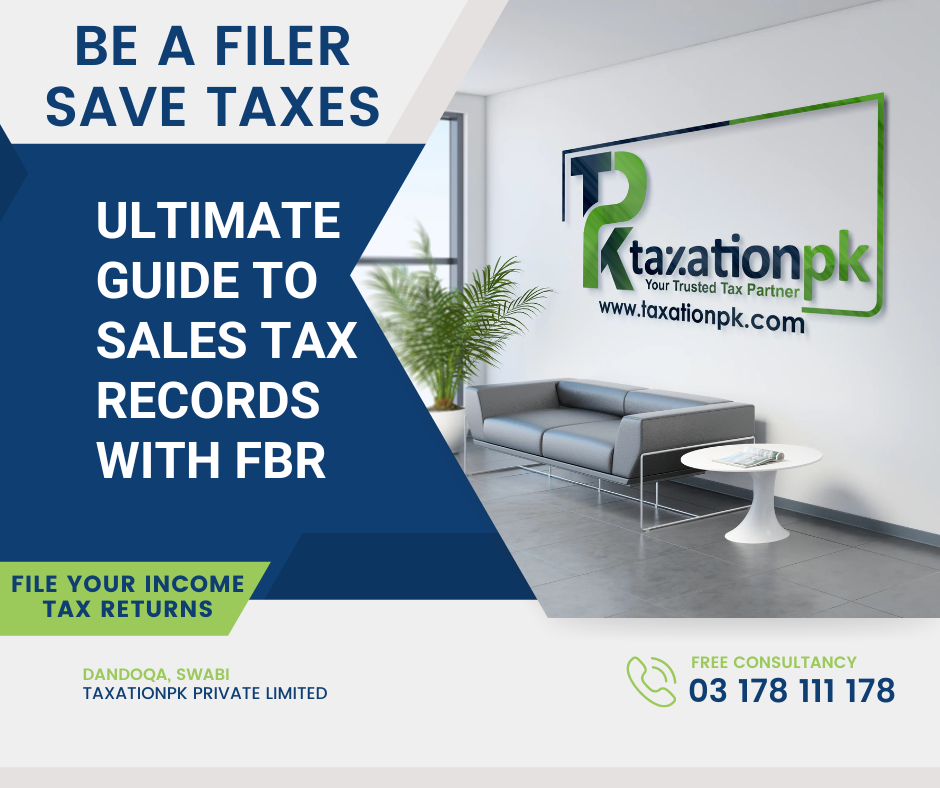Navigating sales tax compliance can be a complex task, and maintaining accurate records is crucial. This article delves into the essential records you need to keep as a registered person making taxable supplies in Islamabad Capital Territory (FBR), ensuring you stay compliant and avoid potential issues.
Mandatory Records for Taxable Supplies:
- Supply Details: Meticulously record the description, quantity, and value of all goods you supply, along with the name and address of the recipient and the amount of tax charged.
- Purchase Records: Maintain detailed records of goods purchased, including description, quantity, value, supplier information, and the amount of tax paid on purchases.
- Import Records (if applicable): If you import goods, keep track of their description, quantity, value, and import tax paid.
- Zero-Rated and Exempt Supplies: Separate records are required for zero-rated and exempt supplies.
- Financial Records: Maintain double-entry sales tax accounts, invoices, credit/debit notes, bank statements, banking instruments, inventory records, utility bills, salary and labor bills, cash book, rental agreements, sale purchase agreements, and lease agreements.
- Gate Passes and Transport Receipts: Record inward and outward gate passes, and transport receipts.
- Electronic Records: You may be required to keep electronic versions of all mentioned records.
- Additional Records: Be prepared to maintain other records as specified by the Board.
Compliance Measures:
- Dedicated Bank Accounts: The Board may mandate specific business bank accounts for sales tax transactions.
- Electronic Fiscal Cash Registers: Certain businesses might need to use Board-approved electronic cash registers.
- Electronic Record-Keeping and Filing: You may be required to adopt electronic record maintenance and filing software as prescribed by the Board.
- Annual Audited Accounts Submission: If subject to audit, submit audited accounts with a tax payment certificate to the authorities.
Record Retention:
- Retention Period: Keep all records for six years after the relevant tax period or until the finalization of any tax-related proceedings, whichever is later.
Remember:
- Accuracy is Paramount: Ensure all records are accurate, complete, and readily available for verification.
- Stay Informed: Regularly check for updates on Board regulations and requirements to maintain compliance.
- Seek Professional Guidance: If navigating the complexities of record-keeping seems daunting, consult a tax advisor for expert assistance.
By understanding and fulfilling these record-keeping obligations, you can ensure smooth sales tax compliance and operate your business with peace of mind. Remember, meticulous record-keeping is your key to avoiding potential tax issues and maintaining good standing with the authorities.






